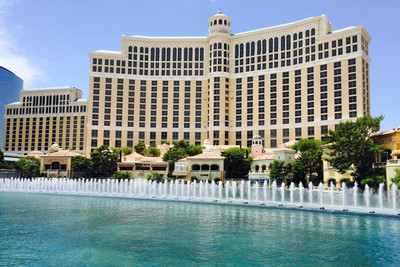 Casino behemoth MGM Resorts looks set for a sensational court battle over its use of controversial ‘resort fees’ in its pricing.
Casino behemoth MGM Resorts looks set for a sensational court battle over its use of controversial ‘resort fees’ in its pricing.
Travelers United, a travel advocacy group, want to see an end to what they term ‘misleading’ resort fees, and they believe that MGM’s hidden costs are in breach of the Consumer Protection Procedures Act.
And so they have filed a lawsuit with Washington D.C’s Superior Court that would essentially outlaw the use of so-called ‘drip pricing’ – where a traveller is shown one price during their browsing process before the resort fee is added after they begin to make a booking.
The non-profit firm believes that MGM Resorts are deliberately misleading their potential customers by showing a hotel room as cheaper than it actually is.
A spokesperson for Travelers United, Lauren Wolfe, wants MGM and other casino resorts to end their use of such fees – especially as these have been reduced lately in order to attract new visitors.
“Resort fees are a clear violation of D.C.’s consumer protection laws,” she said.
“It is time to end the abhorrent practice of illegal resort fees by the hotel industry. All mandatory hotel fees must be included in the advertised price in order to be legal.”
If the lawsuit is successful, Travelers United would force MGM and co to advertise the total price for a stay at one of their resorts – inclusive of any previously hidden charges.
“This separation of the room rate into two parts – one advertised, one as part of a fee – is the issue here,” Wolfe said.
“Since one cannot get out of the fee, the fee needs to be included in the advertised price. Here it is clearly not displayed as part of the advertised price.”
Dragged Through the Courts

MGM, who operate the Bellagio, Mandalay Bay, the Luxor and MGM Grand, to name just a few, have refused to issue a comment on the legal proceedings at the time of writing.
It’s fair to say that the brand has been no stranger to litigation of late, and neither is the practice of ‘drip pricing’ been going under the radar – attorney generals in D.C. and Nebraska have sued Marriott International and Hilton respectively over their use of unfair pricing structures.
The main defence from the hotel chains is that these fees are used to cover the cost of amenities, be it a gym, swimming pool and Wi-Fi, however the legal position is that guests should not have to pay for these services – directly or indirectly – where are advertised as free of charge.
And so the insinuation, perhaps, is that MGM might be heading for a similar scenario given the legal precedent, and that would be a victory for casino gamers considering a trip to one of their properties in the near future.
That follows an expensive legal action taken against the operator last year, when they were sued for a data breach that reportedly saw the names and phone numbers of more than 10 million guests – including celebrities, government officials and high profile CEOs – stolen.
